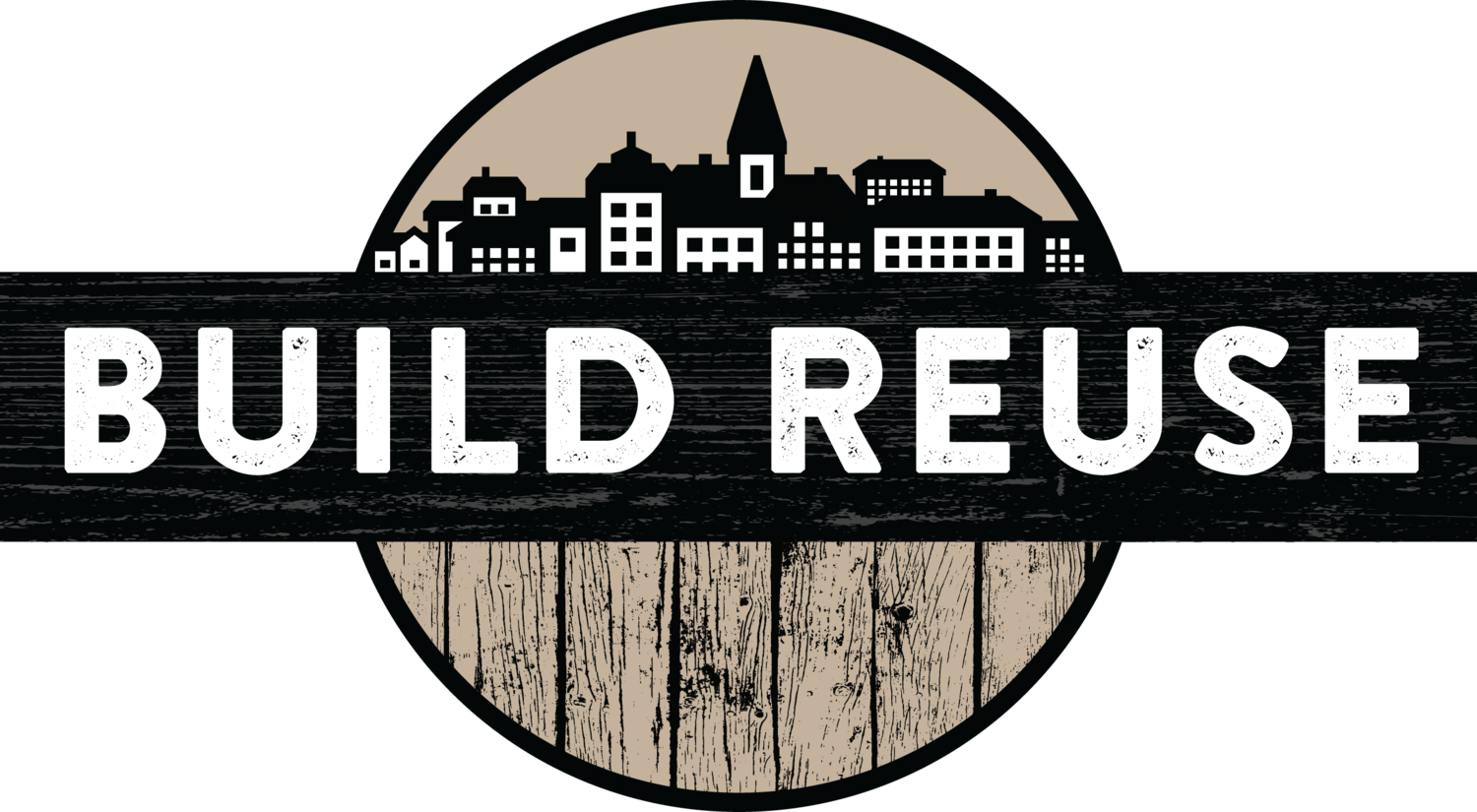
2024 Deconstruction + Reuse Conference
Schedule At-A-Glance
Monday, February 12
Kehoe Ironworks
660 E Broughton St, Savannah, GA
11:00 AM - 5:30 PM ET
All times are listed in Eastern.
11:00 AM - 12:00 PM: Registration/ Lunch
12:00 PM - 1:00 PM: Opening Keynote - Bridgette Frazier
Bridgette A. Frazier was born in Charleston, SC and raised in Bluffton, SC. She received a Bachelors of Arts in Professional English with a minor in Secondary Education from South Carolina State University, and also holds an MPA in Public Administration with a concentration in disaster management from American Public University.
She is the youngest serving official and the youngest candidate ever to be elected to Bluffton Town Council.
She is a retired English Teacher of 15 years and is the owner of Chef B’s Eatz Food Truck and Catering and Ma Daisy's Porch. She has been recognized as a Gullah Preservationist in her work advocating for protection and policy implementation to cultivate and retain the richness of Gullah Geechee Culture. She is the founder of the Bluffton Gullah Cultural Heritage Center and co-founder of BlacQuity. She is the board chair of the Bluffton MLK Observance Committee. She is a member of Alpha Kappa Alpha Sorority Inc. and a member of The Bible Missionary Baptist Church; where she serves as the Community Outreach Director. In 2017 she was awarded the Good Heart Award by The Greater Bluffton Chamber of Commerce and in 2021 she was recognized in The Top 20 under 40 by SC Black Pages.
12:30 - 1:15 PM: Break
1:15 - 2:45 PM: Policy Panel and Concurrent Session Presentations
Session 1a (1:15 - 2:45pm): Policy Panel hosted by the Savannah Decon Policy Council
Open to the Public
Emily Freeman (City of Boulder, Colorado), Katie Kennedy (City of Seattle, Washington), Lauren Zimmerman (City of Portland, Oregon), Olivia Cashman (Hennepin County, Minnesota), Stephanie Phillips (City of San Antonio, Texas)
A growing number of cities and counties across the country are exploring and implementing deconstruction policies. From incentives to ordinances to creative partnerships, local governments see deconstruction and building material reuse as an essential tool to support climate action, equity and social justice, economic vitality, workforce development, and cultural heritage + local identity. Attend this engaging panel to hear from policy administrators about the drivers and impacts of their efforts, how other communities can follow suit, and challenges and opportunities that have arisen from implementation.
Session 1b (1:15 - 2:15pm): Reimagining Waste in Commercial Interior Renovations
Nelson Russom (Turner Construction Company)
General contracting companies play a major role in scaling reuse in the built environment. This session will delve into ways that high-turnover spaces, like commercial interior renovations, can be managed to maximize building material recovery.
Session 1c (1:15 - 2:15pm): The Circular Workplace: The Resilient Living Lab & Product Sustainability
Marcus Hopper, Benjamin Holsinger, Samantha Lewis (Gensler)
Workplace circularity requires full engagement from all parties in the building lifecycle. This session will highlight how Gensler - the largest architecture firm in the world - is implementing processes to further develop the circular economy and identify how the collective Architecture, Engineering & Construction (AEC) industry can bolster and encourage reuse processes.
2:45 - 3:00 PM: Break
3:00 - 4:00 PM: Concurrent Session Presentations
Session 2a: Rewarding progress in the renovation relay: Passing the baton from diversion to design
Brandie Townsend (GBB), Olivia Huang (Goody Clancy)
This presentation will offer a comprehensive look at incremental actions starting in the design phase that can transform how we divert materials and design buildings. With renovation project examples, learn how salvage goals are relayed and implemented among architect, owner, and contractor to benefit both projects and planet and to stay on track for a circular building economy!
Session 2b: Reducing Material and Carbon Waste Through Deconstruction, Reuse, and Design for Disassembly
Stephanie Dalo (Dalo Reuse Innovation)
Reducing embodied carbon and advancing the circular economy are increasingly important efforts in the sustainability realm - but how to they relate to each other in practice? This session will illustrate the relationship between embodied carbon and circular design principles, and propose ways to measure reuse data to account for embodied carbon reductions that can be achieved through reuse and designing for disassembly.
Session 2c: New Incentives for Material Reuse: The Intersection of Embodied Carbon, New Decision-Making Frameworks, and Local Legislation
Hannah Wilson (Arup)
While a growing number of deconstruction ordinances effectively divert materials away from waste-streams, there is a pressing need for complementary policies and tools that incentivize the reuse of construction materials at-scale. In this talk, the speaker will present various drivers and tools that have the potential to shape how we better incorporate reused materials into new structures. Further discussion will explore the presented approaches and challenging the roles that architects, planners, engineers, and consultants can play in driving this change.
4:00 - 4:15 PM: Break
4:15 - 5:30 PM: Members Meeting
Open to all conference attendees. Build Reuse membership not required!
Luna Oiwa will present the Build Reuse Wiki + Forum. Learn more about this resource produced and shared by the building material reuse community.
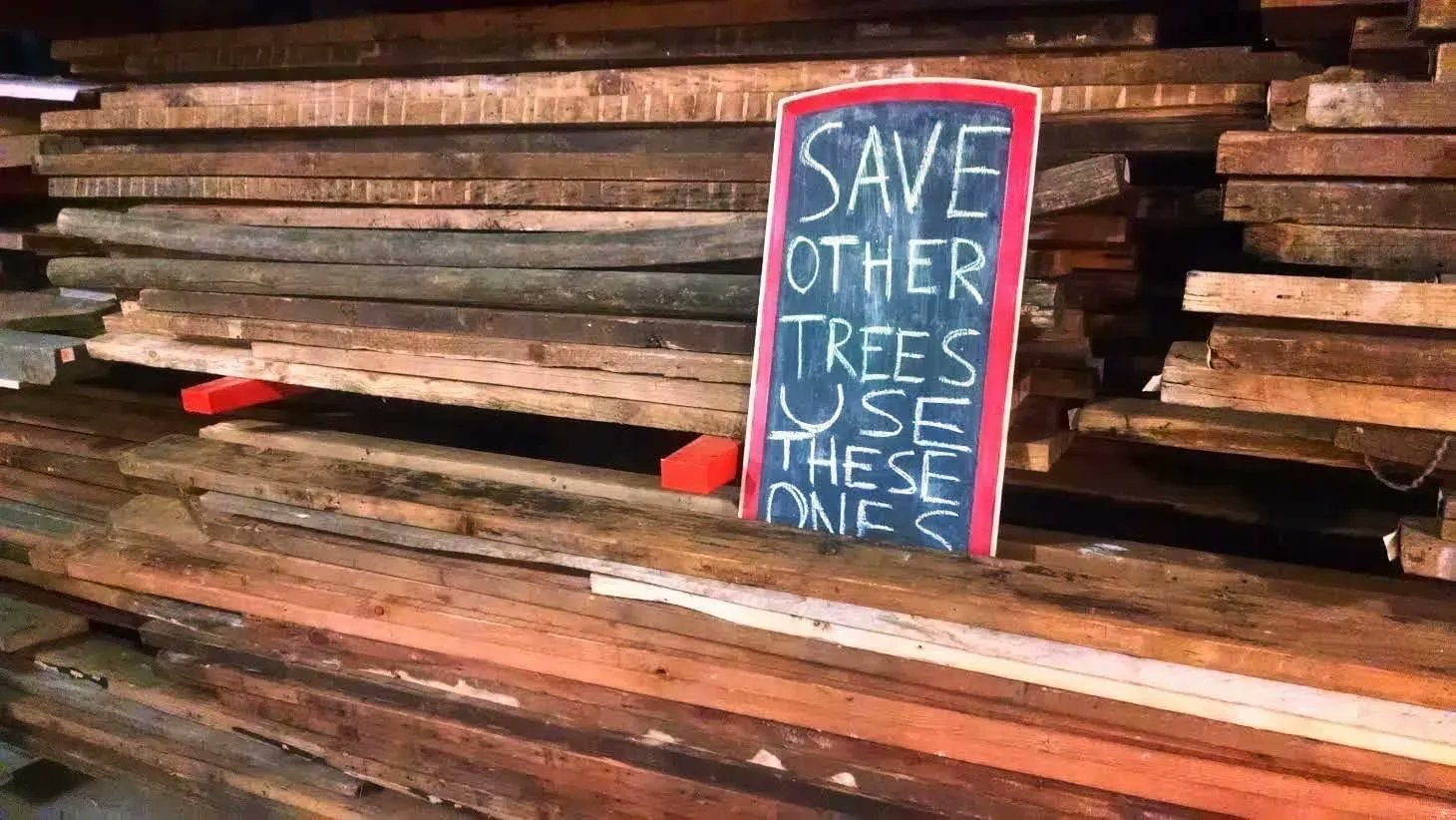
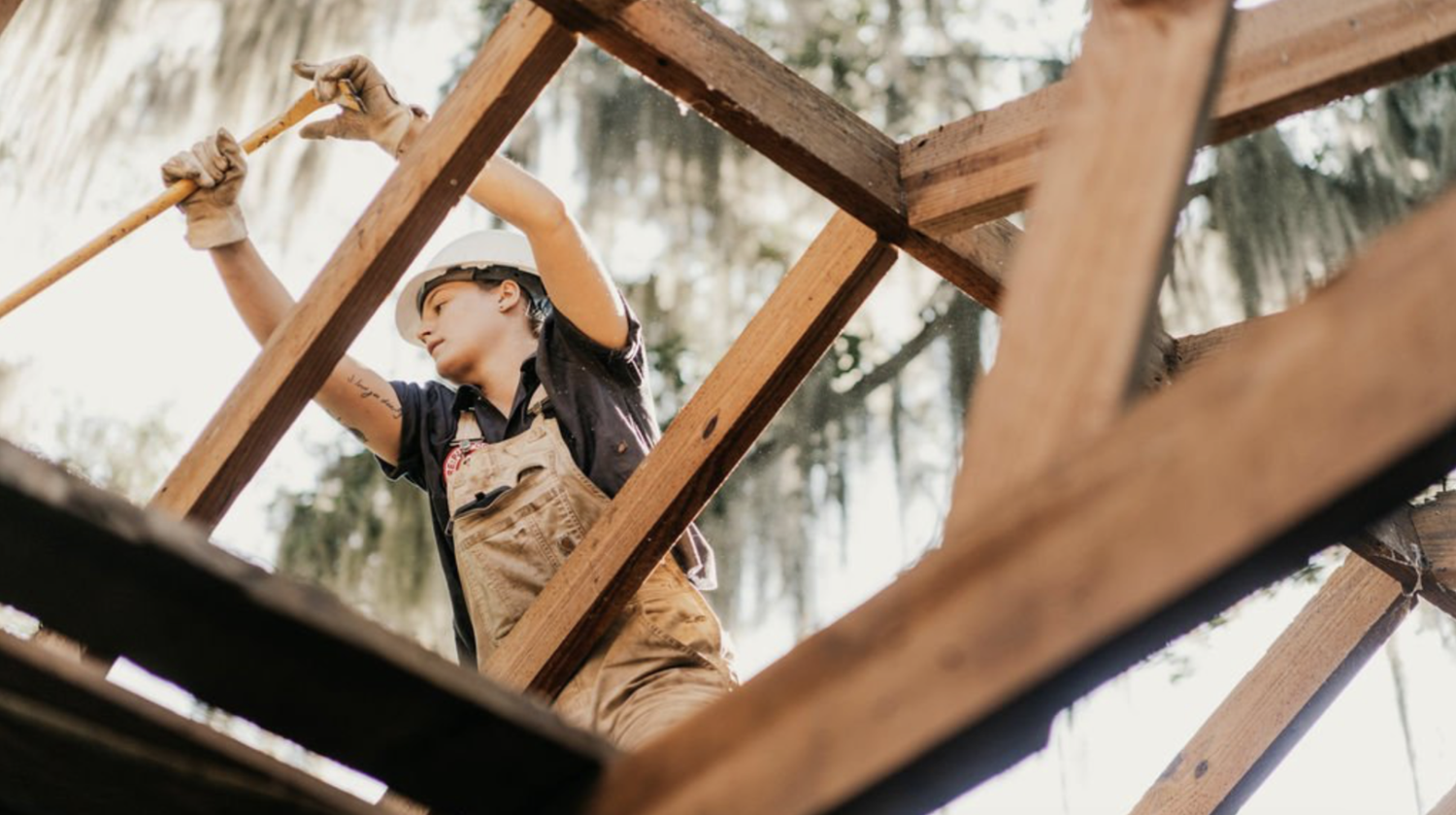
Tuesday, February 13
Kehoe Ironworks
660 E Broughton St, Savannah, GA
7:00 AM - 4:30 PM ET
All times are listed in Eastern.
7:00 - 9:00 AM: Breakfast (included with conference registration)
9:00 - 10:00 AM: Day 2 Keynote
Eden Brukman, Chief Sustainability Officer for the County of San Diego
Eden Brukman is the first Chief Sustainability Officer for the County of San Diego where she leads the Office of Sustainability and Environmental Justice. For more than 25 years, Eden has focused on establishing socially and environmentally responsible solutions for human habitat. Also a licensed architect, Eden's advocacy efforts have led to policy reform, decentralized building and community developments, and the creation of a network of local action groups in cities all over the world.
10:00 - 10:15 AM: Break
10:15 - 11:15 AM: Concurrent Session Presentations
Session 3a: Running a Commercial Reuse Enterprise: A How-To
Andrew Ellsworth (Doors Unhinged)
Commercial material reuse is a niche with strong potential for impact, job creation, and enterprise development. This session will serve as both case study and introduction to operating a commercial reuse enterprise, including evaluating material types for opportunities, knowing your customers and how to reach them, how to staff an organization to meet the needs of clients, how to launch your own enterprise, and much more.
Session 3b: An Ecosystem of Players Versus a Silver Bullet
Loraine Icibaci (Superuse Studios)
Superuse Studios, a Rotterdam-based global architecture firm, founded the platform oogstkaart.nl in 2012 as a marketplace for reusable building materials. The platform is utilized by Superuse and external architects, design professionals, builders, and design professionals. This session will detail how this platform has helped create a harvest map, bill of materials, purchasing lists, material passports, and collaborative ecosystem that ultimately helps achieve a circular realization in the built environment.
Session 3c: Disrupting the Supply Chain and Tackling Climate Change through Deconstruction and Reuse
Dave Bennink (ReUse Consulting), Erick Serpas Ventura (Vema Deconstruction), Larry LaMotte (ReCapturit), Stephanie Dalo (Dalo Reuse Innovation)
Deconstruction and reuse in the Pacific Northwest is exploding. This session will discuss the interwoven elements of policy, partnerships, training, and technology that are helping foster more robust local and regional reuse ecosystems. This session will also discuss examples of working together with First Nations Communities to recover materials from buildings that would otherwise be demolished for cultural centres, learning centres, and other housing opportunities.
11:15 - 11:30 AM: Break
11:30 AM - 12:30 PM: Concurrent Session Presentations
Session 4a: Boulder Unveiled: Triumphs in Deconstructing Residential and Commercial Buildings
Emily Freeman (City of Boulder, Colorado), Anna Perks (Perks Deconstruction), Leana Evenson (City of Boulder, Colorado)
The City of Boulder’s Deconstruction Ordinance took effect July 2020, requiring all residential and commercial buildings being removed or substantially remodeled to divert 75% by weight from the landfill. To date, the ordinance has achieved 73% diversion across all reported projects. This session will highlight two projects to share how both residential and commercial properties can be successfully deconstructed to create a circular economy. Additionally, this session will explore how Boulder’s policy has been a driver for material reuse and recycling, as well as the successful partnerships with contractors and reuse organizations.
Session 4b: Structural Timber Reuse
Felix Heisel (Circular Construction Lab, Cornell University)
Applying circular economy principles through the structural reuse of reclaimed wood in new construction can reduce the climate impact of the construction industry. However, the ability to reuse reclaimed wood products in new structural design is limited by the modern wood industry and design process. This panel describes the implementation of new processes that allow designers to account for variability in the dimension and mechanical properties of reclaimed wood in two case study design-build projects on the Cornell University campus in 2022/23.
Session 4c: Reuse as Resilience: Reaching Beyond the Marketplace
Jackie Kirouac-Fram (ReBuilding Center), DeShawnté Campbell (ReBuilding Center), Katy Kutzner (Community Forklift)
Increasingly, efforts to increase reuse in the marketplace are overshadowing the potential for reuse to build community and generate hyperlocal economic and social benefits. This presentation asks: who benefits when we monetize reuse? Who is left behind? We discuss how to grow the practice of reuse and support reuse markets without replicating the harms of the marketplace (pollution from upcycling, inaccessible pricing, resource extraction), and how to make reuse a tool for resilience through equitable business practices that place your local community at the center of your work, even if your work takes place at the regional, state, or national scale.
12:30 - 1:30 PM: Lunch (included in conference registration)
1:30 - 2:30 PM: Concurrent Solution Sessions
Our signature Solutions Sessions form small groups to generate action-oriented ideas on topics of importance. The workshop-style sessions are followed by a collective report out to share knowledge and galvanize action beyond the conference. We’ve selected the following timely areas that our membership has identified as priorities heading into 2024 and beyond.
Session SSa: Social Media and Online Sales for Reuse Operations
Moderators: Scott Buga (Community Forklift) and Terry Wiles (Construction Junction)
Session SSb: C&D Waste and Recycling Ordinances
Moderators: Lauren Zimmermann (City of Portland) and Jackie Kirouac-Fram (ReBuilding Center)
Session SSc: Funding Opportunities for the Reuse Community
Moderators: Aina Gutierrez (ReBuilding Exchange) and Nick Deffley (Southeast Sustainability Directors Network)
2:30 - 2:45 PM: Break
2:45 - 3:45 PM: Concurrent Session Presentations
Session 5a: Growing the Industry: Re:Purpose Savannah’s Apprenticeship, Consulting, and Publication Strategy
Mae Bowley (Re:Purpose Savannah), Katie Fitzhugh, (Re:Purpose Savannah), Kelley Lowe, (Re:Purpose Savannah), Natalie Henshaw (The Campaign For Historic Trades)
Deconstruction, salvage, and reuse is a (re)emerging industry. With deep roots in historic practice, deconstruction is making new waves across America, paving the way for a circular economy. This presentation will introduce Re:Purpose Savannah's strategy for growing the industry, grounded in a preservation mindset, through three significant efforts: creating the first Department of Labor registered deconstruction apprenticeship program in the United States; launching a consulting arm of our nonprofit focused on new organizations and municipalities; and developing best-practices publications for historic materials management supported by grant from the National Center for Preservation Training and Technology.
Session 5b: Learning from North Americans
Barbara Lambec (EPFL - École Polytechnique Fédérale de Lausanne)
Published literature on barriers and levers of component reuse in buildings is project-based or does not consider the interviewee’s feedback and perception as a factor evolving over time and according to gained experience. In this presentation, the evolution of the perception of barriers and levers is thus studied through the practitioners’ self-assessments for different career periods. For comparison purposes, the interviewees’ careers are here segmented into three periods: at the genesis of a business or of the interviewees’ first interest in the reuse practice; currently; and in the future, i.e. according to their expectations. Interviewees’ were invited to discuss how the scales (personal practice, local practice, construction field), means (demand, offer, tools, capacities, opportunities), and stakeholders (knowledge, skills) influence their barriers and levers. 60 meetings were held, 35 stakeholders were interviewed, and more than 30 site visits were conducted. The panel of interviewees showcases a diversity of activities, spanning the study, deconstruction, transformation, reselling, and building for/with reuse activities.
Results show that despite difficulties encountered due to improper regulations, the existence of a reuse industry and a network of actors appears as an essential lever. This study demonstrates that routinizing the practice of reuse is viable and straightforward. The remaining non-perceptual barriers appear to be regulations and dynamics of monopolized markets.
Session 5c: Embracing the Future: Transitioning to Shopify for a Seamless Circular Economy Building Materials Store
Nika Vaughan, Zach Share (ReBuilding Exchange)
This session will delve into ReBuilding Exchange’s plan for updating their e-commerce and point of sale process to Shopify. Beyond the technological shift, this process emphasizes the interwoven elements of staff training, quality assurance, and a holistic transformation involving the entirety of the sales, logistics, and marketing teams. The session also discusses how online presence is not only an operational upgrade, but can also be a calculated strategy for brand relevance and growth.
3:45 - 4:30 PM: Concurrent Mini Sessions
Our Mini Sessions showcase exciting and digestible case studies in under an hour.
Session 6a: Circular Construction Lab ScanR
Andrew Boghossian (Circular Construction Lab, Cornell University)
This session will highlight the development and testing of ScanR (Scan for Reuse): a deconstruction estimation tool which pairs quantitative and qualitative salvage and deconstruction surveying (S&D survey) with commercially available LiDAR and photogrammetry scanning software. The presentation will walk through an example case and project workflow, along with interspliced anecdotal stories and photos from the Circular Construction Lab’s history of building deconstruction over the last three years.
Session 6b: A Case Study in Steel Deconstruction and Reuse: Boulder Community Hospital
Greg Kingsley (KL&A)
In 2023, the Boulder Community Hospital in Boulder, Colorado was partially dismantled. This project yielded 536 salvaged steel pieces, 90 of which were repurposed immediately on a new construction project and the remainder made available to the public. This session will introduce steel deconstruction, illustrate the journey of implementing a steel reuse process, and offer insights into the creating a circular economy within the construction industry.
4:30 - 5:00 PM: Trolleys depart for Re:Purpose Savannah
5:00 - 8:00 PM: Oyster Bake at Re:Purpose Savannah
Re:Purpose Savannah is hosting a sunset Oyster Roast on the bluff of their nearby lumber yard for conference attendees and guests! Food, drink, and trolley transportation from Kehoe Ironworks and back is included. Join our local hosts for a fun evening of socializing, informal tours, and taking in the view.
Registration required. Event is a conference add-on for $50 per person.
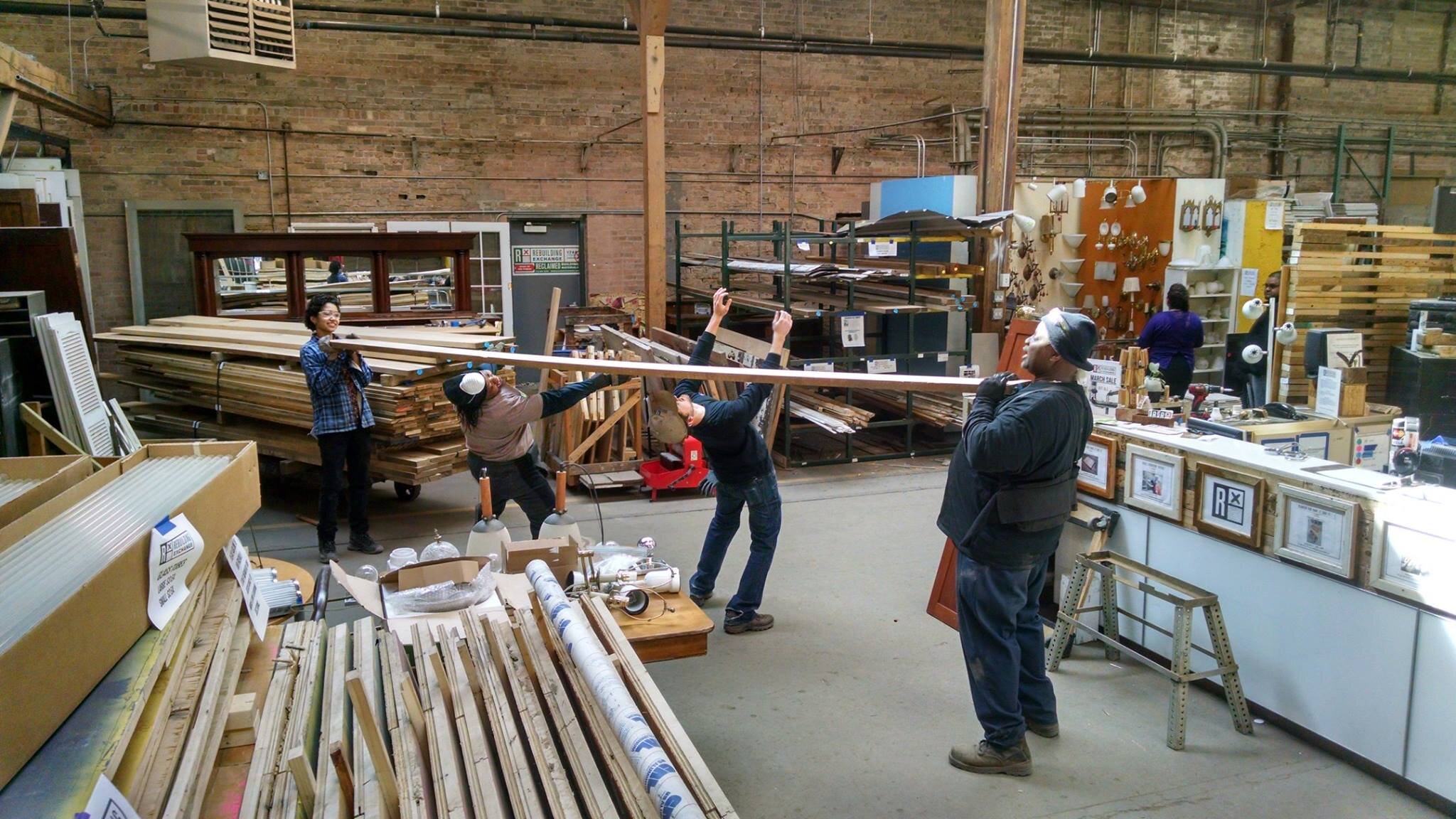
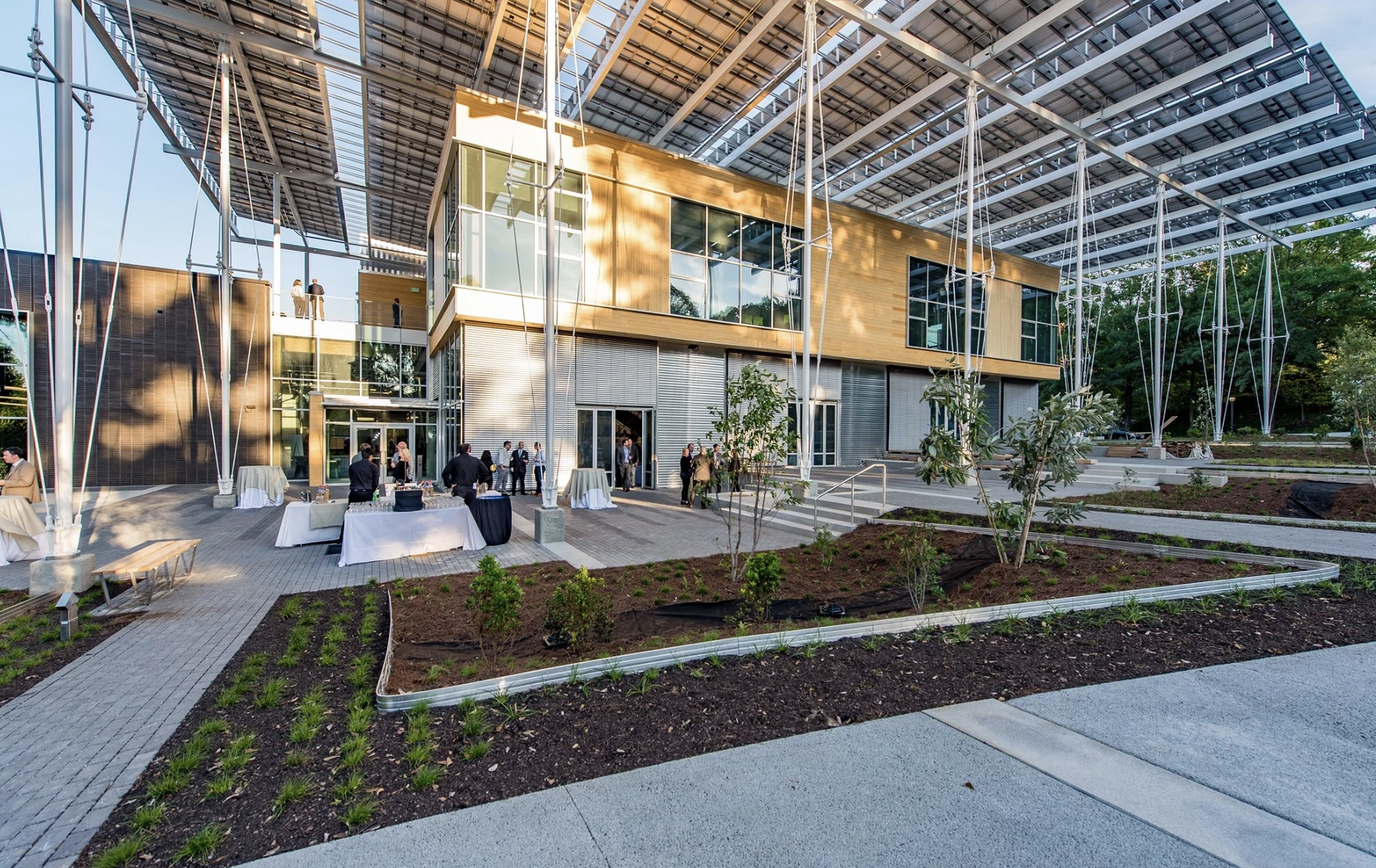
Wednesday, February 14 💚
Kehoe Ironworks
660 E Broughton St, Savannah, GA
7:00 AM - 1:30 PM ET
All times are listed in Eastern.
7:00 - 9:00 AM: Breakfast (included with conference registration)
9:00 - 10:00 AM: Concurrent Session Presentations
Session 7a: Supporting Seattle’s Circular Wood Economy
Katie Kennedy (Waste Diversion Planner) - Seattle Public Utilities, Jess Harris (Green Building Program Manager) - Seattle Department of Construction and Inspections; Moderated by Shawn Wood (Embodied Carbon Advisor) – EPA
This presentation will cover City of Seattle's current and upcoming efforts to promote salvage and deconstruction as well as highlight EPA's grant support for Seattle's reuse economy and other reuse efforts across the country. Seattle is using financial and permitting incentives to increase demand and reduce costs for deconstruction and using reclaimed lumber. Thanks to a $4M Grant from the EPA, Seattle will be able to support the establishment of a salvaged wood warehouse. The warehouse will be a key piece of the business ecosystem to process, store, and sell the wood salvaged from deconstructions. We hope participants will be able to draw from and add to this discussion so that we all walk away with ideas on how to grow our local circular wood economies.
Session 7b: Turning Vacant Spaces into Community Places: Adaptive Reuse Success Stories from Minnesota
Melissa Wenzel (Minnesota Pollution Control Agency)
We all live in communities with good quality buildings sitting idle and vacant. How can we encourage others to see the value of these existing buildings and consider repurposing them instead of tearing down and building new? Minnesota has several dozen examples of adaptive reuse of buildings that will inspire community leaders, developers, and local government staff to not only see vacant buildings differently in their community, but work on repurposing these old buildings to give them new life.
Session 7c: ReBuildATL: Breaking Barriers
Shannon Goodman (Lifecycle Building Center), Michelle Wiseman, Fred Stevens, Karim Nelson (Grove Park Foundation), Jay Bassett, Jimmy Mitchell (SKANSKA)
The ReBuildATL Coalition includes more than 40 nonprofits, academic institutions, industry partners and local government agencies committed to empowering disadvantaged communities in the Westside of Atlanta. With initial support from an EPA job training grant, the ReBuildATL Coalition was originally formed to create and deliver a workforce training program called Breaking Barriers Through Deconstruction, which recently graduated its first cohort. This session will share how the Coalition provides a broad range of expertise and resources to address the area’s energy challenges and develop clean energy solutions, with reuse at the forefront.
10:00 - 10:15 AM: Break
10:15 - 11:15 AM: Concurrent Session Presentations
Session 8a: Mannington, Rheaply, Build Reuse - Partnership Panel
Cindy Kaufman (Mannington Commercial), Daniel Kietzer (Rheaply), Shannon Goodman (Build Reuse), Mike Gable (Build Reuse)
Session 8b: Two Challenging Materials: Solutions for Denailing Lumber and Reusing Insulated Glass
Jorie Wisnefski (Urban Machine) and Daniel Marshall (Re-assembly LTD)
This session will highlight two technology solutions to two common material reuse challenges: denailing lumber and reusing insulated glass. Presenters will share a survey of the current best practices around the world and highlight key precedent building projects where glass, windows, or lumber was recovered, processed, and re-installed for its next life.
Session 8c: Class Act: Transforming New York State’s Vacant Schools into Building Circularity Centers
CR0WD: Circularity, Reuse, Zero Waste Development
Gretchen Worth (Susan Christopherson Center for Community Planning), Andrew Roblee (Roblee Historic Preservation)
Often perceived as a sign of loss in a community, vacant schools represent a once vibrant and useful piece of property now empty and devoid of purpose. They become a drain on a municipality’s resources as the building is secured and maintained yet does not function or generate tax revenue. There is high potential for Building Circularity Centers to help long-time vacant schools regain their important community role: building material reuse centers and social and educational hubs that provide sustainability-related services including tool lending libraries, repair cafes, compost drop-off sites, reuse of other material streams; house spaces for artisans and entrepreneurs; and offer opportunities for workshops and community gatherings.
11:15 - 11:30 AM: Break
11:30 AM - 12:30 PM: Closing Keynote
Dave Bennink, RE-USE Consulting and Innovation Center, Bellingham, WA
with Shannon Goodman (Build Reuse), Joshua Gassman (Lord Aeck Sargent), Frank Ellsworth (Ellsworth Design Build), Jimmy Mitchell (Skanska), and Mae Bowley (Re:Purpose Savannah)
Dave Bennink has been part of the circular economy for over 30 years. Dave and his team have offered sustainable alternatives to the building industry by practicing deconstruction over demolition. He has worked throughout North America and helped out in 12 other countries, diverting over 100,000,000 pounds from the landfill by finding alternative sustainable practices.
12:30 PM - 1:30 PM: Lunch and Closing Comments
Lunch (included with conference registration), closing remarks, and thank yous from Build Reuse.
